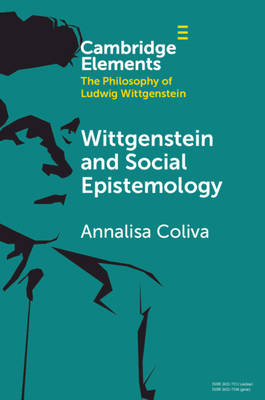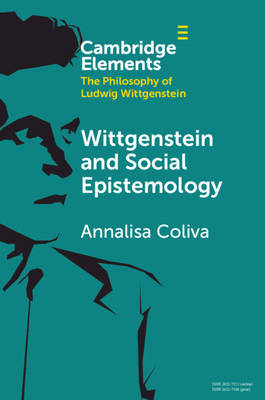
- Afhalen na 1 uur in een winkel met voorraad
- Gratis thuislevering in België vanaf € 30
- Ruim aanbod met 7 miljoen producten
- Afhalen na 1 uur in een winkel met voorraad
- Gratis thuislevering in België vanaf € 30
- Ruim aanbod met 7 miljoen producten
Zoeken
Omschrijving
The last twenty years have witnessed a 'social turn' in analytic philosophy. Social epistemology has been crucial to it. Social epistemology starts by repudiating the kind of individualistic epistemology, which, since Descartes' Meditations and through Kant's maxim 'Think for yourself', has dominated philosophy. It is a sign of the deep erasure of Wittgenstein's ideas from many debates in analytic philosophy that neither his views against fundamental tenets of individualistic epistemology, nor his positive contribution to key themes in social epistemology are considered. This Element on Wittgenstein and Social Epistemology is the first comprehensive study of the implications of the later Wittgenstein's ideas for key issues at the core of present-day social epistemology, such as the nature of common sense and its relations to common knowledge; testimony and trust; deep disagreements in connection with genealogical challenges; and the meaning of 'woman' and the role of self-identification in the determination of gender.
Specificaties
Betrokkenen
- Auteur(s):
- Uitgeverij:
Inhoud
- Aantal bladzijden:
- 74
- Taal:
- Engels
- Reeks:
Eigenschappen
- Productcode (EAN):
- 9781009551342
- Verschijningsdatum:
- 14/08/2025
- Uitvoering:
- Paperback
- Formaat:
- Trade paperback (VS)
- Afmetingen:
- 152 mm x 229 mm
- Gewicht:
- 108 g

Alleen bij Standaard Boekhandel
+ 66 punten op je klantenkaart van Standaard Boekhandel
Beoordelingen
We publiceren alleen reviews die voldoen aan de voorwaarden voor reviews. Bekijk onze voorwaarden voor reviews.







